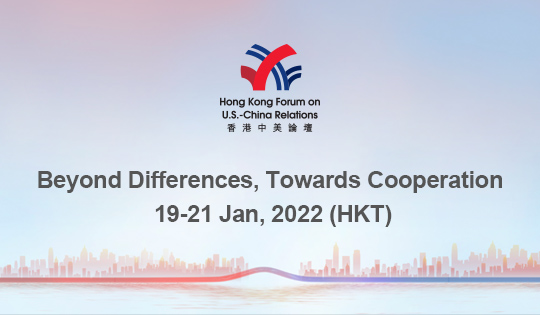Maximum pressure has been the Trump administration’s signature policy instrument for achieving economic and diplomatic objectives. It has succeeded in some cases but failed in many more. Because of its unreasonable ultra-unilateralist nature, the idea is doomed to go bankrupt sooner or later.
Maximum pressure was originally a standard instrument employed in business bargains for commercial interests. Donald Trump used to be a businessman, and was a typical frequent practitioner of this tactic, according to some of his books — for instance, “The Art of the Deal.” To achieve the desired commercial gains, he would typically threaten his business opponents with measures that would cause them maximum damage. Those targeted, fearful of the damage, would often choose to compromise.
Such successes might have encouraged Trump to apply the same approach to international affairs. Since taking office, he has lashed out with maximum pressure against many countries, including China, Iran, Turkey, Japan, South Korea, Mexico, Canada and the European Union. The purpose was to fix his self-defined trade deficit problem and serve other diplomatic and strategic purposes. The tactic, which is based on purely selfish interests and applied through unilateral coercion, has seriously undermined the international order.
Despite its being practiced in business, maximum pressure tactics do not always create successful stories in foreign relations. They are often doomed to fail.
In business relations, profit is usually the single-most-important variable in decision-making. In international relations, however, the parties face far more complicated scenarios. Chances are high that countries targeted by maximum pressure, unlike corporations in business, will resist resolutely. Targeted countries must always face strong domestic resistance, and any compromise can be questioned by political opponents as a betrayal of the nation. In the end, those targeted have little or no room for compromise on issues involving security and sovereignty. Therefore, more countries choose to resist, rather than compromise.
What’s more, maximum pressure runs diametrically against global trends. The Trump administration has made no secret that it seeks to achieve the selfish interests of the U.S. above all via unilateral coercion. The international community, by contrast, has learned that working for win-win outcomes in multilateral dialogue and cooperation is the best way to solve disputes. Nobody can exclusively achieve individual interests in an interconnected world.
Maximum pressure has had destructive impacts on the international economic and political order, as this approach despises rules in international trade and international politics and puts aside multilateral mechanisms and institutions. Leaders around the world understand that maintaining the existing order is necessary.
Several examples illustrate how Trump has succeeded with a maximum pressure approach. Canada, Mexico and Japan, for instance, have compromised with the U.S. on trade balance issues.
But more countries and entities have chosen to resist U.S. pressure. The EU, for instance, has strongly resisted U.S. pressure to increase its budget for NATO and resolve trade issues in America’s favor. Federica Mogherini, the EU’s high representative for foreign affairs and security policy, said on Nov. 12 that the EU will exercise maximum diplomacy with everybody in a crises. This sort of maximum diplomacy expresses not only the EU’s opposition to the U.S. approach but also dissatisfaction with the use of maximum pressure toward other entities.
China is another case in which forceful positions were taken in response to Trump’s maximum pressure. Beijing has committed to resolving disputes via dialogue and consultation, yet has retaliated against unreasonable tariffs. It has particularly stood firm on the principle of sovereignty in its negotiations with the U.S.
Iran’s countermeasures have been comprehensive and fierce in response to Trump’s all-around maximum pressure. In June, it shot down a U.S. spy drone in the Hormuz area, and in July seized a British oil tanker in the same area — clearly as a reaction to the U.S. oil embargo and blockade and a preemptive measure against further U.S. actions. Iran has also worked hard to prevent the U.S. from isolating it politically. That resulted in the U.S. isolating itself on the nuclear issue. Iran has also been working out ways to solve payment problems in trade with a variety of partners to evade U.S. financial sanctions.
The victims of maximum pressure are situated in a wide area around the world. They have conducted countermeasures on their own, but their general approach of fighting back has led to a global consensus that resistance is best.
Chinese and EU leaders have frequently voiced their opposition to unilateralism, even on bilateral occasions. For instance, during the French president’s latest visit to China in early November, the two sides talked a lot about pushing back unilateralism, with maximum pressure as a major feature. Global efforts in this regard are also visible in the UN General Assembly, summits of SCO and BRICS and other multilateral occasions as leaders have frequently voiced their opposition to unilateralism and support for multilateralism.
All these efforts have greatly encouraged global efforts to resist maximum pressure.
All in all, despite some successes, maximum pressure has met with more head-to-head resistance. Those who resist should be applauded, as they have contributed greatly to maintaining the international order. Their resistance will ultimately push the unreasonable tactic into bankruptcy — and hopefully soon.
